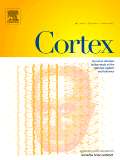
Social Neuroscience
Scope & Guideline
Illuminating the Links Between Social Interaction and Brain Function
Introduction
Aims and Scopes
- Neural Correlates of Social Behavior:
Research in this area explores how different brain regions and neural pathways contribute to social behaviors, such as empathy, aggression, and social decision-making. - Interpersonal Dynamics and Synchrony:
Studies investigate the neural synchrony and connectivity between individuals during social interactions, shedding light on how social bonds and communication are neurologically represented. - Impact of Social Context on Neural Processing:
Research examines how social contexts, such as peer influence or authority dynamics, affect neural responses and cognitive processes, providing insights into the social modulation of behavior. - Emotional and Cognitive Processing:
The journal emphasizes the relationship between emotional regulation, cognitive functions, and social interactions, often using neuroimaging techniques to explore these links. - Developmental and Clinical Perspectives:
Papers often address the neural underpinnings of social cognition across different developmental stages and in clinical populations, enhancing understanding of disorders such as autism and social anxiety.
Trending and Emerging
- Technology-Enhanced Social Interactions:
Research exploring the neural correlates of digital interactions, such as remote communication and virtual environments, has gained traction, particularly in light of the COVID-19 pandemic. - Neuroscience of Empathy and Compassion:
There is an increasing focus on the neural mechanisms underlying empathy, compassion, and moral decision-making, with studies investigating how these processes are affected by context and individual differences. - Diversity in Social Neuroscience Research:
Emerging themes include the exploration of cultural differences in social cognition and emotional processing, highlighting the importance of context in understanding neural responses to social stimuli. - Interdisciplinary Approaches to Social Issues:
The journal is witnessing a rise in studies that address broader societal issues, such as mental health stigma and the effects of social disadvantage, through a neuroscientific lens. - Neural Basis of Social Learning and Influence:
There is a growing interest in understanding how social learning and influence are represented in the brain, particularly in contexts involving peer dynamics and authority figures.
Declining or Waning
- Traditional Psychological Constructs:
There appears to be a waning emphasis on traditional psychological constructs that do not incorporate neuroscientific findings, as the field increasingly prioritizes interdisciplinary approaches that integrate neuroscience with social psychology. - Static Models of Social Cognition:
Research that relies on static models of social cognition without considering dynamic interactions and real-time neural processes is becoming less common, as there is a growing recognition of the complexity of social behavior. - Overemphasis on Single-Method Studies:
There is a noticeable decrease in studies relying solely on single methodologies, such as behavioral assessments, as the journal increasingly favors multi-method approaches that combine neuroimaging, physiological measurements, and behavioral data.
Similar Journals

Current Opinion in Behavioral Sciences
Illuminating the Path of Cognitive and Behavioral DiscoveriesCurrent Opinion in Behavioral Sciences, published by ELSEVIER, is a premier academic journal that provides insightful and comprehensive reviews of contemporary research in the fields of behavioral neuroscience, cognitive neuroscience, and psychiatry and mental health. With an impressive Q1 ranking in multiple categories and Scopus rankings that highlight its influence—4th in Behavioral Neuroscience and 8th in Cognitive Neuroscience—this journal has positioned itself as a leading platform for disseminating high-quality scholarly work. Accessible to readers in the United Kingdom and beyond, it plays a vital role in advancing knowledge and understanding of behavioral science and its applications. Its impact is further underscored by its percentile rankings in key fields, making it an essential resource for researchers, professionals, and students seeking to stay abreast of the latest developments and trends from 2015 to 2024. This journal aims to bridge the gap between cutting-edge research and practical application, fostering a collaborative and interdisciplinary approach to pressing issues in behavioral sciences.

JOURNAL OF EXPERIMENTAL PSYCHOLOGY-GENERAL
Advancing the Frontiers of Psychological ResearchJOURNAL OF EXPERIMENTAL PSYCHOLOGY-GENERAL, published by the American Psychological Association, is a leading journal in the field of experimental and cognitive psychology. With an ISSN of 0096-3445 and a robust impact factor that reflects its significant contribution to research, this journal serves as a premier outlet for empirical studies that advance our understanding of psychological processes across development and cognition. Covering a wide array of topics from developmental neuroscience to general psychology, it is categorized in the Q1 quartile across multiple fields, making it a vital resource for researchers, professionals, and students alike. The journal has maintained a consistent publication record since its inception in 1975, continuously freeing insights that shape the future of psychology and related disciplines. With rigorous peer review and high standards of scholarly excellence, JOURNAL OF EXPERIMENTAL PSYCHOLOGY-GENERAL remains an essential platform for disseminating innovative psychological research.

JOURNAL OF PSYCHOPHYSIOLOGY
Decoding the Physiological Foundations of Psychological ProcessesJOURNAL OF PSYCHOPHYSIOLOGY, published by Hogrefe Publishing Corp, serves as a crucial platform for the dissemination of research in the interdisciplinary fields of neuropsychology, physiological psychology, and neuroscience. With an ISSN of 0269-8803 and an E-ISSN of 2151-2124, this journal has been a staple in the academic community since its inception in 1987 and will continue to publish impactful research until at least 2024. Despite the absence of Open Access, the journal maintains a significant presence, holding Q3 and Q4 quartile rankings in relevant disciplines according to the 2023 metrics. Researchers and practitioners benefit from the journal's robust focus on integrating psychophysiological research with practical applications, contributing to a better understanding of psychological processes through physiological insights. As evident from its Scopus rankings, the JOURNAL OF PSYCHOPHYSIOLOGY is dedicated to fostering scholarly dialogue and advancing knowledge in the field, making it an essential resource for anyone invested in the intricacies of human behavior and the physiological underpinnings thereof.

PSYCHOPHYSIOLOGY
Pioneering Discoveries in Psychophysiology.PSYCHOPHYSIOLOGY, published by WILEY, stands as a leading journal in the intersection of psychology and physiology, contributing significantly to our understanding of the brain and body connection since its inception in 1964. With an impressive scope covering areas such as biological psychiatry, cognitive neuroscience, and neuropsychology among others, the journal has earned multiple Q1 rankings in these critical domains as of 2023, reflecting its high impact in the field. The journal ranks particularly well in categories such as Experimental and Cognitive Psychology and neurology, indicating its status as a pivotal resource for professionals and researchers committed to advancing knowledge in psychophysiological studies. Furthermore, with an e-ISSN of 1469-8986, PSYCHOPHYSIOLOGY is accessible to a global audience, although it is not part of the Open Access movement, ensuring that its rigorous research remains a trusted source for academic excellence. By engaging with this journal, readers can expect to discover pioneering research and significant findings that push the boundaries of current understanding, making it an essential publication for those invested in the advancements of psychological and physiological sciences.

Frontiers in Systems Neuroscience
Pioneering research in the realm of neuroscience.Frontiers in Systems Neuroscience is a premier open-access journal published by FRONTIERS MEDIA SA, dedicated to advancing the understanding of the complex systems that underpin neural function and behavior. Established in 2007 and based in Switzerland, this journal has gained recognition for its rigorous peer-reviewed articles that contribute significantly to the fields of Cellular and Molecular Neuroscience, Cognitive Neuroscience, and Developmental Neuroscience. As of 2023, it proudly holds a Q2 ranking in several neuroscience categories, reflecting its high impact and relevance in the academic community. The journal is accessible to researchers, professionals, and students worldwide, providing a platform for innovative research while promoting collaborative scientific dialogue. With a commitment to open access, Frontiers in Systems Neuroscience ensures that groundbreaking findings are readily available to enhance knowledge sharing across the globe. This makes it an essential resource for anyone looking to stay at the forefront of neuroscience research.

COGNITION & EMOTION
Bridging Cognitive Science and Emotional UnderstandingCOGNITION & EMOTION is a leading academic journal published by Routledge Journals, Taylor & Francis Ltd, focusing on the dynamic interactions between cognitive processes and emotional responses. Established in 1987, this esteemed journal has made significant contributions to the fields of Arts and Humanities, Developmental and Educational Psychology, and Experimental and Cognitive Psychology, consistently ranking in the top quartile (Q1) across various categories. Housed in the United Kingdom, COGNITION & EMOTION boasts a remarkable impact factor, underscoring its influence and importance in advancing psychological research and theory. While this journal does not offer open access, it remains a vital resource for scholars, professionals, and students seeking to deepen their understanding of emotional and cognitive phenomena. With a commitment to rigorous peer-reviewed research and innovative insights, COGNITION & EMOTION is essential for anyone aiming to stay at the forefront of psychological studies.

Frontiers in Integrative Neuroscience
Championing open access to transformative neuroscience research.Frontiers in Integrative Neuroscience, published by FRONTIERS MEDIA SA, is an esteemed open-access journal dedicated to advancing our understanding of the intricate workings of the nervous system. Since its inception in 2007, this journal has become a key resource for researchers and professionals in the field, covering a wide range of topics including cellular and molecular neuroscience, cognitive neuroscience, and sensory systems. With a reputation bolstered by its open-access model, Frontiers in Integrative Neuroscience aims to promote expedient dissemination of high-quality research, ensuring that all findings are readily accessible to the scientific community and beyond. The journal has achieved a commendable recognition, ranking in the upper tiers of its respective categories according to Scopus, with a Q2 ranking in both cognitive neuroscience and sensory systems, and a Q3 ranking in cellular and molecular neuroscience. Based in Switzerland, it continues to be a pivotal platform for innovative research that shapes our understanding of neural dynamics, encouraging collaboration and knowledge exchange among scholars worldwide.

CORTEX
Advancing Understanding of the Brain and BehaviorCORTEX is a premier international journal published by Elsevier Masson, focusing on the cutting-edge areas of cognitive neuroscience, psychology, and neurology. With an impressive impact factor that places it in Q1 quartiles across multiple categories such as Cognitive Neuroscience and Neuropsychology, this journal serves as a vital resource for researchers, clinicians, and students alike. Established in 1964, CORTEX has continued to excel in disseminating high-quality scholarly work, offering insights that significantly enhance our understanding of the brain's functioning and behavior. Although not an open-access publication, it provides various access options to ensure the dissemination of knowledge is as wide-reaching as possible. As the field of cognitive psychology evolves, CORTEX remains at the forefront, fostering an environment for interdisciplinary collaboration and innovation. Researchers seeking to stay engaged with the latest advancements will find CORTEX an indispensable tool for their professional development.

COGNITIVE AFFECTIVE & BEHAVIORAL NEUROSCIENCE
Unraveling the Mind: Where Cognition Meets Emotion and BehaviorCOGNITIVE AFFECTIVE & BEHAVIORAL NEUROSCIENCE (ISSN: 1530-7026, E-ISSN: 1531-135X) is an esteemed journal published by SPRINGER that aims to advance the understanding of the interplay between cognitive processes, affective states, and behavioral responses in the field of neuroscience. Established in 2001, the journal provides a rigorous platform for disseminating high-quality research, with a significant focus on both Behavioral Neuroscience and Cognitive Neuroscience. Classified in Q1 and Q2 quartiles for 2023, it ranks highly within its categories, holding positions of #37 out of 88 and #46 out of 115 respectively in the Scopus listings. Although not an open-access publication, readers can access a wealth of valuable insights and innovative findings that enrich the scientific community's understanding of brain function and behavior. The journal's emphasis on interdisciplinary research contributes to its esteemed reputation, making it a vital resource for students, researchers, and professionals striving to explore the complex nature of the human mind and behavior.

Neuropsychological Trends
Transforming Understanding through Multidisciplinary DialogueNeuropsychological Trends is a prominent, open-access journal published by LED EDIZIONI UNIV, based in Italy. Since its inception in 2007, the journal has dedicated itself to advancing research in the fields of neuropsychology and cellular neuroscience, catering specifically to the evolving trends shaping these disciplines. With the ISSN 1970-321X and an E-ISSN of 1970-3201, the journal provides a platform for multidisciplinary dialogue and exploration of neuropsychological phenomena. While ranked in the fourth quartile for both Cellular and Molecular Neuroscience and Neuropsychology and Physiological Psychology categories in 2023, the journal encourages innovative research that aims to enhance understanding and treatment of cognitive and psychological conditions. The convergence of years from 2011 to 2024 marks a significant period for contributions that inform clinical practice and theoretical frameworks. As researchers, professionals, and students engage with cutting-edge studies and reviews, Neuropsychological Trends serves as a vital resource for staying informed and fostering collaboration in the neuropsychological community.